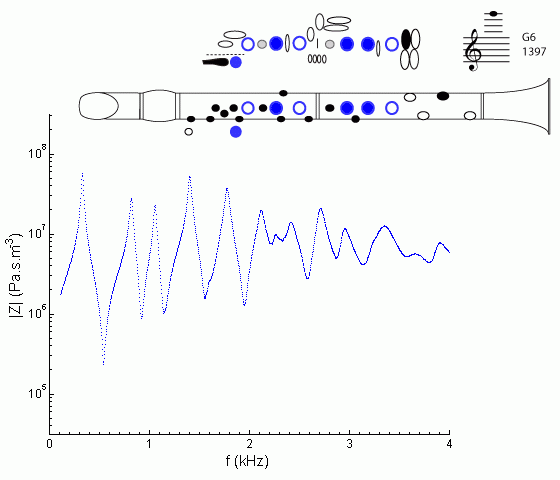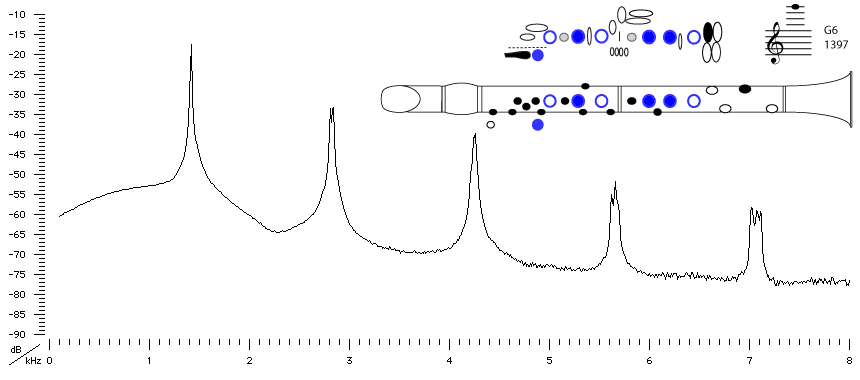| Acoustics of the clarinet |
Bb clarinet |
G6 |

|
Fingering Acoustic schematic Non-specialist introduction
to acoustic impedance Notes are the written pitch. |
From an acoustical point of view, this note starts a new register, because we now have three register holes: the speaker key and the holes of the first and third fingers of the left hand. It is useful to compare it with the fingering and the impedance curve for its 'fundamental', A3. These register holes together weaken and displace the first peak (that would otherwise play A3), the second peak (that would otherwise play E5, the third harmonic, a twelfth above A3) and the third peak (that would otherwise play C#5, the fifth harmonic, a seventeenth above A3). Instead we get something close to the 7th harmonic. This would normally be a very flat minor twenty-first above A3 (two octaves and a flat minor seventh - see the sound spectrum for A3), however the positioning of the register holes sharpens it more or less into tune.

Sound spectrum
of a Bb clarinet
played using fingering for G6.
For more explanation, see
Introduction to clarinet acoustics
|
Contact:
Joe Wolfe
/ J.Wolfe@unsw.edu.au |